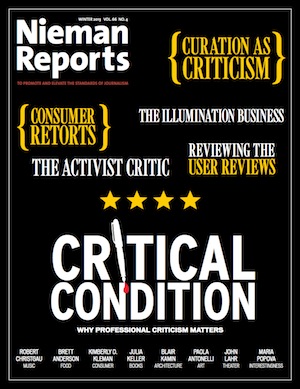Here, journalism legend Philip Meyer looks at the ethics (and efficacy) of undercover reporting.
 The story of legendary undercover reporter Clarence Jones does more than fill me with nostalgia for the rough-and-ready days of newspaper and broadcast reporting. It makes me want to imagine the new forms of mass media that could enable such public-spirited derring-do to flourish again.
The story of legendary undercover reporter Clarence Jones does more than fill me with nostalgia for the rough-and-ready days of newspaper and broadcast reporting. It makes me want to imagine the new forms of mass media that could enable such public-spirited derring-do to flourish again.
Now that cell phones can make movies, and the Internet gives access to a mass audience to everyone with a computer, undercover reporting can be done by anyone. But so far, at least, it seems most likely to be done by political activists — including those with intent to mislead.
Jones’s self-published They’re Gonna Murder You: War Stories From My Life at the News Front reminds us of the need to find a way to create and maintain institutions that will use those tools responsibly and fairly. Born in Jacksonville, Florida in 1934, he put his writing skill and mechanical ingenuity to work in the service of his journalism.
His early career with his hometown paper reminds us that newspapers were a natural monopoly in most places, and bad ones could flourish as easily as good ones. A railroad company tied to the city’s power structure owned both Jacksonville papers and they often blocked controversial projects. Jones sought to escape by applying simultaneously to the Nieman Foundation and The Miami Herald. Both said “yes.” He went to Harvard first, joining the Nieman class of 1964.
Jones and I had overlapping service with the Herald and its parent company at the time, Knight Newspapers. He faithfully captures the paper’s culture, and in the chapter, “Bosses with Balls,” pays tribute to two strong creators of that culture, publisher John S. Knight and editor John McMullan. They were tough newsmen who recruited good reporters and then backed them up.